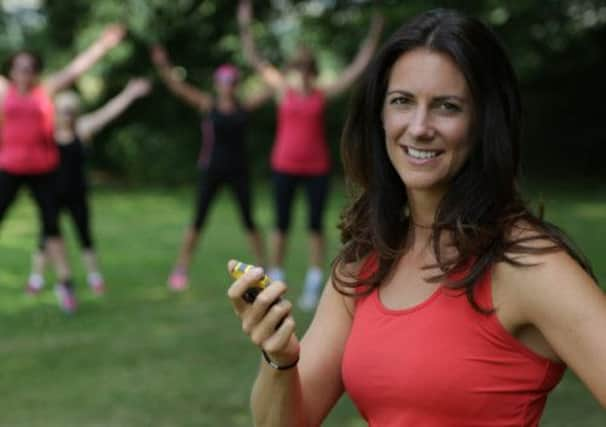Sailor’s TV show to help viewers rise to challenge


The solo sailor is no stranger to wild conditions – she’s crossed the Atlantic three times – but this was the worst yet.
“All sorts of things start to go through your head,” she says, “but you’ve just got to get on and get the job done because no-one else is going to do it for you. In the end I had to untie myself from the rope I was climbing up and climb down.”
Like a fireman’s pole? I ask innocently.
Advertisement
Hide Ad“Yes,” she says, “but on a bucking bronco. It was the most frightening experience of my life.
“The Atlantic does present some pretty nasty conditions,” she adds, “but generally some of the hairiest conditions you can get, especially solo, are close to land, because that is when the water is shallower, the waves get steeper and there’s a lot more traffic in terms of shipping and fishing boats and things like that. It’s all very well trying to deal with a storm when you’re in the middle of nowhere and you have nothing else to worry about but when you’re closer to land, it’s pretty scary stuff.”
But this Berkshire-born girl is not one to panic. “You do what you do to get through a stituation and it’s not until afterwards that you actually think, ‘Oof, blimey, that was close.’”
And while sailing solo can get lonely, she says: “There’s a very big difference between being lonely and being alone. I’ve been sailing with international crews where I’ve actually felt more lonely with them because of the language barrier or whatever than when I’m on my own. When you’re sailing on your own you’re still supported by a huge team so although you’re on your own you never feel completely isolated.”
The real challenges come when things start to go wrong and you’re the only person who can fix it. “When the weather starts to deteriorate or equipment starts to break or a combination of those things – that’s when it starts to get difficult because you have no-one there to help you. Generally you are more sleep-deprived too. You can’t work your way through a 36-hour storm the way you can when you’re fully crewed. You would still do your four hours on then you’d go and get some rest and come back up refreshed; when you’re on your own it is just you and you have to get through whatever situation you’re presented with.”
The 30-year-old achieved a podium position in her last solo transatlantic race in 2009, which she now describes as the highlight of her career, completing the event in 20 days and 22 minutes. “That was what I always wanted to do, it was almost beyond my wildest dreams.”
Advertisement
Hide AdBut what does someone do once they’ve completed their life goal? “For me to go on in the sport, the next stage would have been solo round the world. It’s an extremely expensive sport – for me to sail round the world would cost millions. It was in 2009 at a time people were being made redundant left, right and centre and I just didn’t feel right walking into a boardroom asking for that kind of money. It’s also very selfish – you are living your dream, but who else benefits from that?”
So instead she decided to turn her talents to broadcasting, first presenting during the Olympics, and then creating a television series that passes on some of her own passion for sport to other people. Go Hard or Go Home takes four ordinary people – pub landlords, doctors, members of the WI, car dealers – who are unfit, unhealthy, in a bit of a life rut and unmotivated. “For 12 weeks I mentor and train them,” says White, “and get them to a place where they are capable of being on the start line for a huge challenge.”
Advertisement
Hide AdThat challenge could be a Half Ironman in California, or the world’s fastest canoe marathon in Texas. “It’s serious stuff,” she says. “And the results are extraordinary.”
For the rest of us, however, she advises: “Start small. You get just as much of a buzz crossing the finish line on your first 5K race as you do on your first marathon. And it’s not about being the best, it’s not about being the fastest, it’s not about being the fittest, it’s just about being the best you can be.”
• Go Hard or Go Home starts on Channel 5 in mid October.